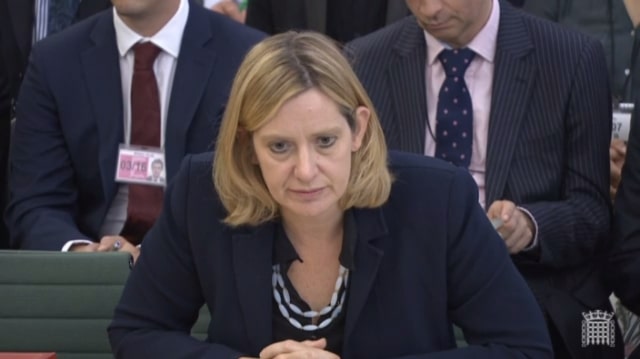Only 10 weeks into the new Conservative Government and already the credibility of its green policies are being called into question. Amber Rudd, head of the Department of Energy and Climate Change (DECC), said yesterday of DECC’s 2015 priorities: “Carbon reduction targets are more essential than renewable energy targets.”
Rudd explained during the Energy and Climate Change Committee’s inquiry into the Department’s objectives for this parliament that decarbonisation is the “most important approach” – within this, both renewable energy and low-carbon energy will play a role, she said.
Rudd stressed that shale gas in particular will be an “important part of the energy mix… It’s an important part of our decarbonisation targets because it’s a low-carbon source of energy.” Meanwhile the government’s commitment to renewable energy remains unclear.
Renewable Future
The majority of the inquiry was spent questioning the future for renewable energy in the UK in light of the recent cuts to onshore wind subsidies and rumours of additional cuts to solar power subsidies.
Committee members repeatedly stressed the mounting concern and uncertainty surrounding renewable energy’s role in decarbonisation under this government.
. @AmberRuddhr: Shale gas is “effectively a low-carbon source” of energy. I think some might wish to challenge that…
— Leo Hickman (@LeoHickman) July 21, 2015
#ECC @AmberRuddhr shale gas “is low carbon source” – this is nonsense! Most of world’s gas is unburnable for climate goals.
— Simon Bullock (@simonbullock) July 21, 2015
Bizarre. Energy SoS @AmberRuddhr tells @CommonsECC that shale gas is a low-carbon source of energy. Only compared with coal!
— Bob Ward (@ret_ward) July 21, 2015
Rudd dodged questions about which alternative sources of renewable energy would replace the future capacity that would have been supplied by onshore wind. Instead, she advised developers to look at potential opportunities that don’t involve subsidies.
When asked what plans are in place in case renewables aren’t able to stand on their own feet without subsidies prior to 2020, she replied: “We have to have confidence in the strategy and that renewables will deploy in a way that they’ll become less and less costly.”
The government’s commitment to cut carbon emissions provides the long-term signal to the renewable industry, Rudd added.
Long-Term Signals
Rudd asserted that while subsidies are important, they shouldn’t be the long-term answer to the low-carbon economy: “Subsidies are a way to get the low-carbon economy going and then the government [must] step back.”
It is now unclear what money remains available up to 2020 for the Levy Control Framework (LCF) – the LCF aims to provide certainty to investors while limiting financial impact on those who will ultimately foot the bill for new renewable and low-carbon electricity schemes.
Fears that the LCF spending cap for green power subsidies will be breached have been circulating for a while, but last week they ramped up further as the Office for Budget Responsibility released its official forecast.
In 2012, the coalition set a cap of £7.6bn for 2020/21. Forecasts now predict that spending will reach £9.1bn by this time: some 20 percent over the original LCF cap.
“I am acutely aware of the need to give some certainty post-2021,” Rudd said, noting that she is in discussions about a future framework.
In addition, Rudd admitted she does not anticipate that onshore wind will be allowed to access Contracts for Difference this year – the market support mechanism designed to encourage the deployment of low-carbon generation at the lowest cost.
This is pretty damn major. No CfD round for large renewables projects this yr. Is there much govt green policy left? https://t.co/m31Pjsma2r
— Simon Inglethorpe (@s_inglethorpe) July 21, 2015
Carbon Targets
Renewable energy was not the only thing shrouded in uncertainty. Carbon reductions targets were also raised during the Select Committee meeting yesterday.
DECC permanent secretary, Stephen Lovegrove, admitted that “there is a bit of a shortfall” in the fourth carbon budget for the 2020s. Under the Climate Change Act’s fourth carbon budget (2023–2027), the UK Government must reduce its emissions by 50 percent by 2025 from a 1990 baseline. Rudd promised to come back with policies to address this shortfall.
Rudd also avoided questions about renewing carbon reduction policies once they expire post-2020, arguing that the carbon budgets are an effective tool for long term planning. She added that due to continual changes in new technology, “we don’t know yet what the answer will be for the 2030s.”
“We will continue to support new technology and innovation… in order to find out where else we can expand the opportunity to improve our carbon reductions.”
Photo: Parliament TV Screen Grab
Subscribe to our newsletter
Stay up to date with DeSmog news and alerts







